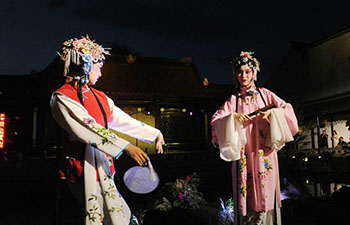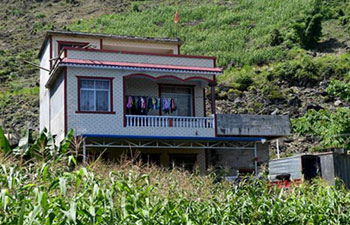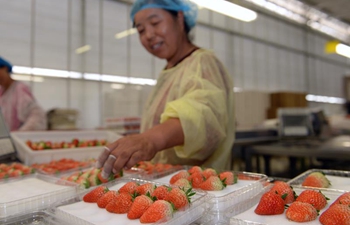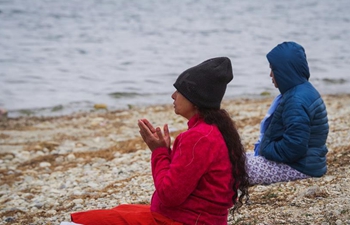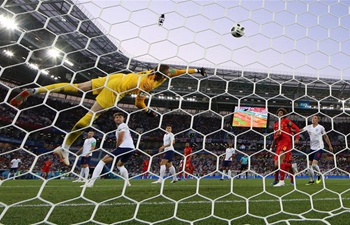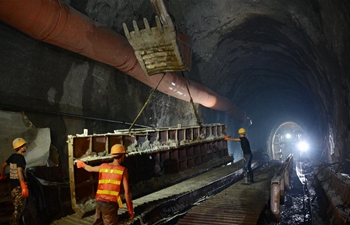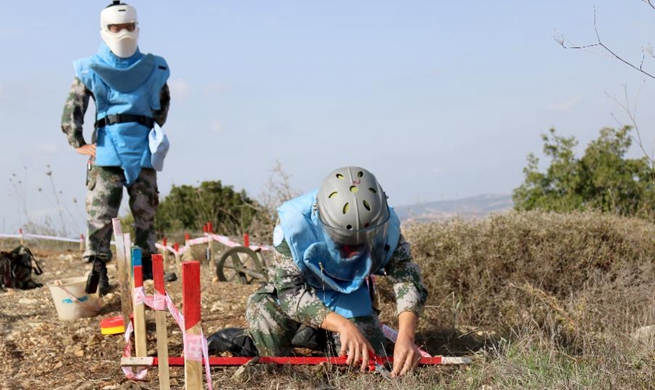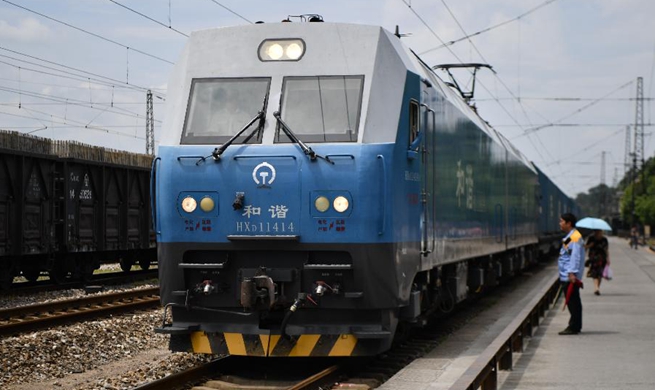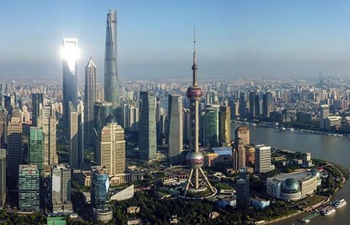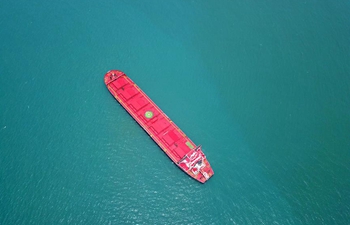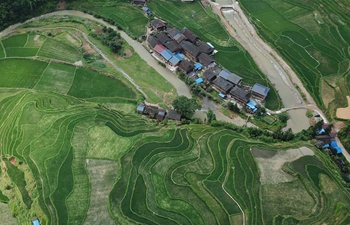By Eric J. Lyman
ROME, June 29 (Xinhua) -- Italian Prime Minister Giuseppe Conte and French President Emmanuel tried to bury the hatchet after a recent spate of name calling and criticisms to help pave the way for a change in the way the European Union handles migrant arrivals.
It may take months to know how it will work out.
After two days of talks for the European Council in Brussels -- including one marathon 13-hour negotiating session -- the leaders of 17 European nations on Friday agreed to a joint statement, calling for greater burden sharing for the costs of processing and helping migrants.
But the agreement was heavy on "voluntary" participation, and there was no language to solve the problem of what to do with non-governmental rescue boats that helped spark the new phase in the problem in Italy.
"Whether the talks in Brussels a success or not? It depends on your point of view," Antonio Villafranca, research coordinator and head of the European Program at the Institute for the Study of International Politics, told Xinhua.
"If you expected leaders to come up with a full solution to the migrant problem, then you'll be disappointed. If you wanted to see more recognition for the problem and some small steps forward, then maybe it wasn't that bad."
Italy's government, installed less than a month ago, has made migration front-page news since taking power. In one of its first major acts, it turned away a non-government rescue ship with more than 600 migrants on board.
Similar rescue ships continue to patrol the Mediterranean to help save migrants risking their lives to cross into Europe. But it's not clear where they will be able to land once they find migrants. Italy and Malta have already said they cannot land on their shores.
"In the short term, the problem remains the same as it was before the leaders met," Stefano Allievi, a sociologist with the University of Padova, said in an interview.
"But the hope is that the agreement of solidarity might lay some groundwork for more ambitious steps in the future. We may not know what it means for some time," Allievi said.
The clashes between Conte and Macron are an indication of how prickly the issue of migration in Europe has become. Macron has criticized Italy's decision to turn away migrant rescue ships, while Conte said that France's own mixed record on migration meant it had no right to criticize.
According to media reports, Conte at one point threatened to veto the joint announcement, saying he would not agree to half measures, because "for me nothing is agreed until everything is agreed".
Eventually, the two leaders joined their 15 colleagues and signed the text, agreeing to revisit the issue in the future.
The biggest success of the talks, according to Allievi, may be the elevation of the migrant issue as a priority.
"In terms of the number of arrivals, the current levels are still far below the peak in 2015 and 2016," Allievi said.
"It's a bigger issue now, politically, than it was then, and maybe Europe is doing things now that it should have done in the past. I think now, everyone would agree we have to do something. Things cannot go on as they are," he added.
